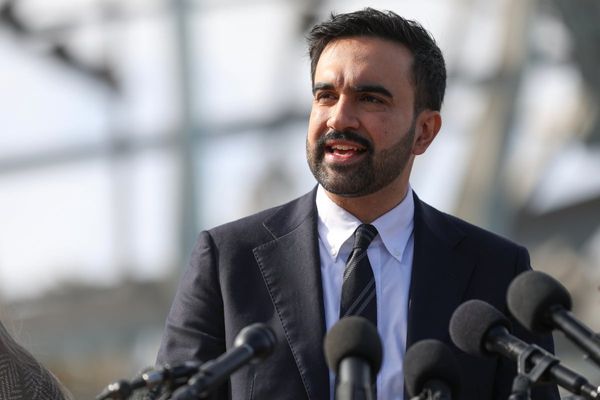The jury has retired to consider its decision in the trial of Bruce Lehrmann, the man accused of raping Brittany Higgins inside Parliament House in 2019.
The case ran for 12 days and heard evidence from almost 30 witnesses.
Before they retired, Chief Justice Lucy McCallum told the jury they must act "impartially" and "dispassionately" as they go through the facts of the trial to reach a decision.
She summarised both cases, including the prosecution's argument that Ms Higgins was a credible witness who had stuck to her story for three years, and the defence case that she had either made up the assault to save her job or had reconstructed events.
She also warned the jury not to make assumptions about why Ms Higgins took two years to make a police report.
"The central issue in this trial has been whether the sexual intercourse occurred," Chief Justice McCallum said.
She also reminded the jury that Mr Lehrmann is entitled to the presumption of innocence.
"It is and always has been a central feature of our system of justice that people tried in this court are presumed to be innocent unless and until their guilt is proved beyond reasonable doubt," she said.
"He's entitled to the benefit of any reasonable doubt you may have at the end of your deliberations."
The Chief Justice acknowledged that public interest in the trial may have made some jurors anxious but said they must focus on the facts put to them throughout the case.
"You're not answerable in this trial to public opinion," she said.
"That's particularly important in this trial because the trial has attracted a lot of public attention.
"You would have seen the number of journalists in court [in] this case, they're practically hanging from the rafters."
She also added that there was no "blueprint" for how certain people respond to certain situations.
"There's no blueprint for life and no blueprint for a sexual assault and how a young woman might respond to a sexual assault," she said.
Mr Lehrmann has pleaded not guilty and has said no sexual activity occurred.
Defence closes
Defence lawyers for Mr Lehrmann closed their case in the ACT Supreme Court today.
In his final submissions, Steven Whybrow argued that sexual intercourse never happened and suggested that Ms Higgins did not know what happened inside Linda Reynolds's ministerial suite on March 23, 2019.
Mr Whybrow said there was a lack of evidence against Mr Lehrmann.
"There's no DNA evidence … there's no contemporaneous medical complaint, there is in fact contemporaneous lies … there's no photo of a bruise," he told the jury.
"There was no other evidence other than Ms Higgins and her subsequent demeanour and what she said to other people."
Mr Whybrow reiterated that he believed there were reasons for Ms Higgins to lie about the complaint, including maintaining her job and earning a $325,000 book deal.
"I'm not here again to tell you or to prove why she goes back to the police and initiates this [police complaint] again in 2021," he said.
"It's a trite line, but there are 325,000 reasons at least now why this case is important from her perspective."
The prosecution finished making its final submissions on Tuesday in the trial of Mr Lehrmann.
In his submissions, Director of Public Prosecutions Shane Drumgold told the jury there were five key things for them to consider when making their decision.
He said they should ask whether Mr Lehrmann was attracted to Ms Higgins, why he entered Parliament House, whether Mr Lehrmann did engage in sexual intercourse with Ms Higgins, whether she could consent and finally whether Mr Lehrmann was reckless about whether Ms Higgins had consented or not.
He reminded the jury the case was not about politics but about what happened in the early hours of a night in March inside a parliamentary suite.
"This case is not about political movements, it's not about political parties and it's not about workplace cultures — certainly not about other experiences in Parliament or [the] 'Me Too' movement."
The court had chosen 16 jurors in case of illness, but all stayed the course and today four had to be released, leaving 12 to make a final decision.
The jury must now reach a unanimous decision on whether Mr Lehrmann is guilty or not guilty.







